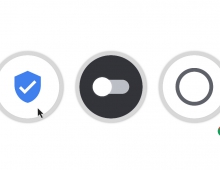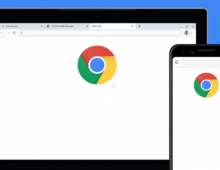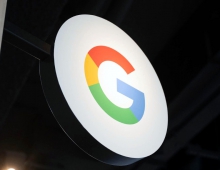
Latest Chrome Beta Offers Fancier graphics, Safer Downloads
The Google Chrome has released Chrome 12 Chrome 12.0.742.30, which includes a number of new features and updates.
First, Google's team made Chrome's graphics snazzier by implementing support for hardware-accelerated 3D CSS, which allows web developers to apply 3D effects to web page content using CSS.
Second, Google has taken Safe Browsing a step further. In addition to protecting users against malware and phishing websites, Chrome now warns them before downloading some types of malicious files. Chrome uses the same algorithms for checking downloads as it does for checking websites, so Google can help protect users without ever needing to know the URLs they visit or the files they download.
Third, users now have more control over their online privacy. Many websites store information on users' computer using forms of local data storage such as Flash Local Shared Objects (LSOs). In the past, users could only delete Flash LSOs using an online settings application on Adobe's website, but Google worked with Adobe to allow users to delete Flash LSOs directly from Chrome?s settings.
Fourth, Google has improved screen reader support in Chrome. Many people who are blind or visually impaired use a screen reader, a special type of software that describes the contents of the screen using synthesized speech or braille. It?s a very important technology for people who would otherwise be unable to use a computer, so Google has added preliminary support for many popular screen readers including JAWS, NVDA, and VoiceOver.
Finally, the subtraction: In this beta release, Google has removed the Google Gears plug-in.
Second, Google has taken Safe Browsing a step further. In addition to protecting users against malware and phishing websites, Chrome now warns them before downloading some types of malicious files. Chrome uses the same algorithms for checking downloads as it does for checking websites, so Google can help protect users without ever needing to know the URLs they visit or the files they download.
Third, users now have more control over their online privacy. Many websites store information on users' computer using forms of local data storage such as Flash Local Shared Objects (LSOs). In the past, users could only delete Flash LSOs using an online settings application on Adobe's website, but Google worked with Adobe to allow users to delete Flash LSOs directly from Chrome?s settings.
Fourth, Google has improved screen reader support in Chrome. Many people who are blind or visually impaired use a screen reader, a special type of software that describes the contents of the screen using synthesized speech or braille. It?s a very important technology for people who would otherwise be unable to use a computer, so Google has added preliminary support for many popular screen readers including JAWS, NVDA, and VoiceOver.
Finally, the subtraction: In this beta release, Google has removed the Google Gears plug-in.





















